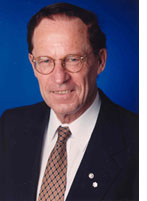
There were three maxims carved into stone at the entrance to the Temple of Apollo at Delphi in Greece, commonly referred to as the Delphi Oracle. The first maxim, or expression of general truth, was “Know Thyself.” To “Know Thyself,” or “Self-Awareness,” is foundational to a spiritual life. It is as important for individuals as it is for society.
Humanity is at a crossroads and we need to decide if we are going to evolve to our next step of collective potential or if we are going to self-destruct through violence, greed, and false ideas of separation from each other and from nature. If we recognize our interdependence with each other, our decisions will shift from “what’s best for me” to “what’s best for the common good.” So how do we shift our collective consciousness from “me” to “we”?
Change begins within, with the self, and potentially expands outward to groups, organizations, and larger systems. The fundamental principle of development is “Know Thyself,” or self-awareness, which is the foundational quality of being an Edgewalker. According to Otto Sharmer, author of Leading from the Emerging Future, the fundamental principle of systems change is to help the system to become aware of itself.
Edgewalkers are committed to some kind of personal practice that allows them to listen to that inner voice that guides them. In the midst of all the chaos, competing demands, and short time frames that we find in so much of modern life, it is essential to take time for silence and reflection to know oneself and one’s connection to what is transcendent. Organizations that wish to transform themselves also commit to collective practices such as silence before meetings, and periodic spiritual retreats or time in nature.
In the coaching we do at Edgewalkers International, our process begins by exploring what the client currently does to nurture their own self-awareness. It is amazing that most people have had some kind of self-reflective practice in the past, but many seem to have let it go these days. In Zen practice the master says simply, “begin again.” Jesus invited us to be “as little children.” I encourage my clients — and I encourage you –to think about some practice you have had in the past that worked for you. Can you “begin again,” perhaps taking it in small steps? Is there some new practice that you have thought about taking on that you could get into with child-like joy and innocence? Journaling? Walking in the woods? Ta’i chi? Sitting for five minutes in a sacred space? Attending an online religious service or an online spiritual workshop?
We need the time for self-reflection because we are called to do important work in the world. We need that time to discern our true sense of purpose, and to be sure that we are taking care of body, mind, heart and spirit as we do our work.
 One of the central qualities of Edgewalkers is self-awareness. People who are Edgewalkers are committed to some kind of personal practice that allows them to listen to that inner voice that guides them. In the midst of all the chaos, competing demands, and short time frames that we find in so much of modern life, it is essential to take time for silence and reflection.
One of the central qualities of Edgewalkers is self-awareness. People who are Edgewalkers are committed to some kind of personal practice that allows them to listen to that inner voice that guides them. In the midst of all the chaos, competing demands, and short time frames that we find in so much of modern life, it is essential to take time for silence and reflection.